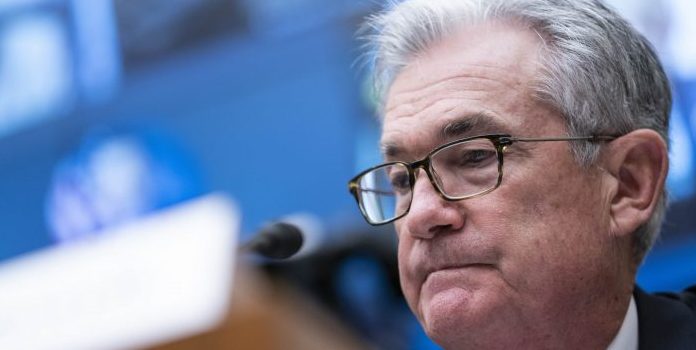(Headline USA) If parents thought the fight to keep Marxist ideas like Critical Race Theory out of our nation’s schools was a difficult battle, keeping it from infiltrating America’s murky and nebulous financial systems may be near impossible.
Unlike classrooms, where teachers are subject to some level of accountability, there is very little to keep the nation’s top bank in check—a semi-private institution shrouded in secrecy that few understand, nor have the desire and capacity to monitor.
Recent overtures, however, suggest that the already corrupted Federal Reserve system may soon be going woke, with the Biden administration in position to replace up to four key board members, including Fed Chair Jerome Powell.
In order to keep his job, Powell seems to be caving to the pressure to prioritize issues completely unrelated to the nation’s financial institutions that are part of the Biden administration’s broader social agenda.
Inequality can prevent the U.S. economy from reaching its potential, he said Tuesday, and he underscored the Fed’s commitment to reducing unemployment as broadly as possible, including among disadvantaged groups.
Unemployment among minorities reached historic lows in the pre-pandemic Trump administration, but it has thus far continued to sputter on Biden’s watch.
“While monetary policy does not target any particular group of people … we are attentive to disparities in the labor market, rather than just the headline numbers,” Powell said in remarks to a conference Tuesday on diversity and inclusion.
Powell’s comments illustrate one reason why the Fed has been hesitant to reverse its low-interest rate policies even as inflation has spiked to three-decade highs this year.
Before the pandemic, the Fed kept its benchmark short-term interest rate pegged at nearly zero, and unemployment eventually fell to a 50-year low of 3.5%. The benefits of the strong pre-pandemic economy were widespread.
“Wages had been moving up, and meaningfully so, especially on the lower ends of the pay scale,” Powell said. “Many who had struggled for years were finding jobs. Racial disparities in unemployment were narrowing.”
The pandemic recession, however, fell hardest on lower-income workers and widened racial gaps, he said. A healthy recovery has started to reverse those trends.
“A strong labor market delivers broad-reaching benefits and extends those benefits in particular to low- and moderate-income communities,” Powell said.
Powell’s remarks opened a conference of central banks from Canada, the U.K., and Europe, in addition to the Fed. The Fed chair said central banks, as leading employers of economists, can foster greater diversity in the profession.
“Throughout my career, in both the public and the private sectors, I have seen that the best and most successful organizations are often the ones that have a strong and persistent commitment to diversity and inclusion,” he said. “These organizations consistently attract the best talent, by investing in and retaining a world-class workforce.”
Powell is currently under consideration for another four-year term as Fed chair, with a decision expected sometime this month.
President Joe Biden is also considering elevating Lael Brainard, the only Democrat on the Fed’s board of governors, to be the next chair. Powell was appointed by President Donald Trump in 2017.
Adapted from reporting by the Associated Press

